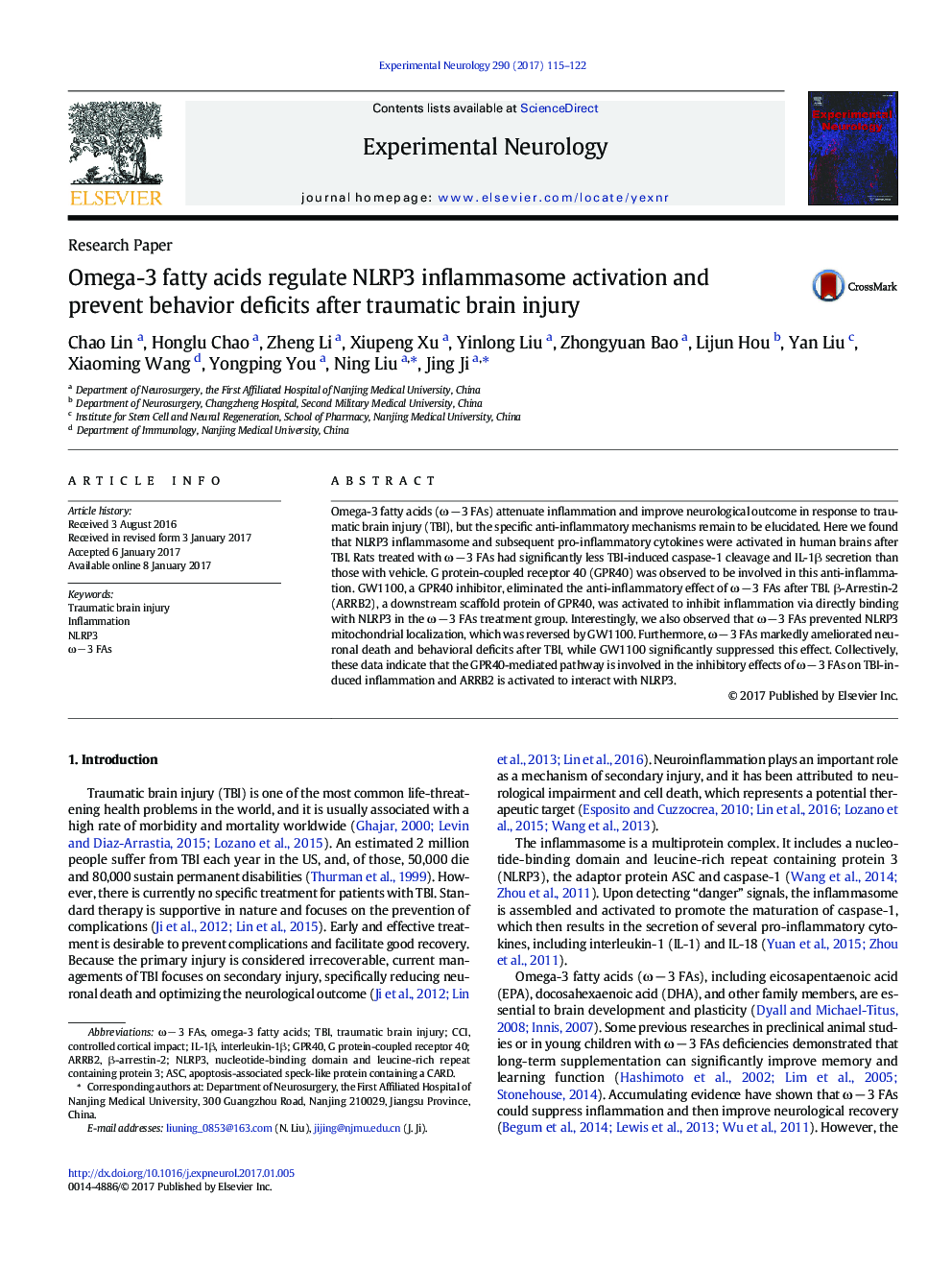| Article ID | Journal | Published Year | Pages | File Type |
|---|---|---|---|---|
| 5629298 | Experimental Neurology | 2017 | 8 Pages |
â¢Inflammation was readily observed in human brains after TBI in comparison to control.â¢Ï-3 FAs ameliorate TBI-induced inflammation and behavior deficits in part by inhibiting NLRP3 inflammasome activation.â¢ARRB2 functions as a key regulator to directly bind with NLRP3 in the Ï-3 FA-mediated inflammation.
Omega-3 fatty acids (Ï â 3 FAs) attenuate inflammation and improve neurological outcome in response to traumatic brain injury (TBI), but the specific anti-inflammatory mechanisms remain to be elucidated. Here we found that NLRP3 inflammasome and subsequent pro-inflammatory cytokines were activated in human brains after TBI. Rats treated with Ï â 3 FAs had significantly less TBI-induced caspase-1 cleavage and IL-1β secretion than those with vehicle. G protein-coupled receptor 40 (GPR40) was observed to be involved in this anti-inflammation. GW1100, a GPR40 inhibitor, eliminated the anti-inflammatory effect of Ï â 3 FAs after TBI. β-Arrestin-2 (ARRB2), a downstream scaffold protein of GPR40, was activated to inhibit inflammation via directly binding with NLRP3 in the Ï â 3 FAs treatment group. Interestingly, we also observed that Ï â 3 FAs prevented NLRP3 mitochondrial localization, which was reversed by GW1100. Furthermore, Ï â 3 FAs markedly ameliorated neuronal death and behavioral deficits after TBI, while GW1100 significantly suppressed this effect. Collectively, these data indicate that the GPR40-mediated pathway is involved in the inhibitory effects of Ï â 3 FAs on TBI-induced inflammation and ARRB2 is activated to interact with NLRP3.
